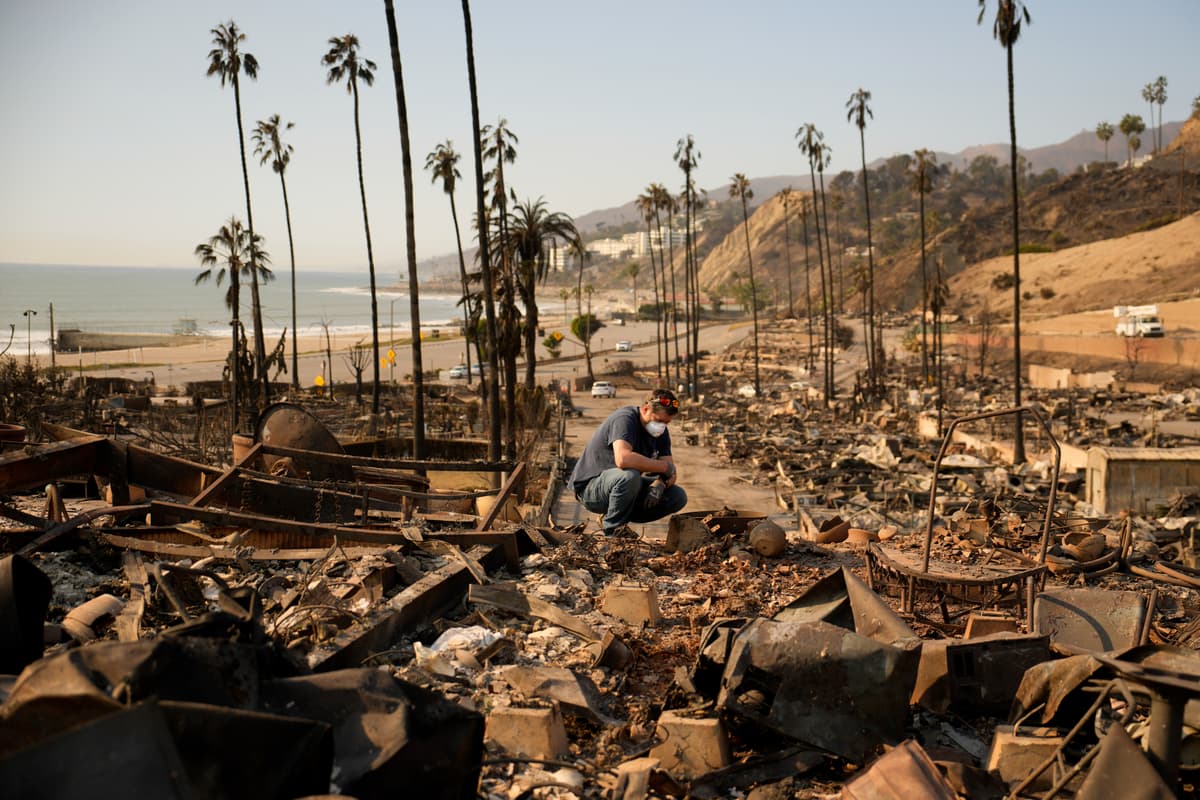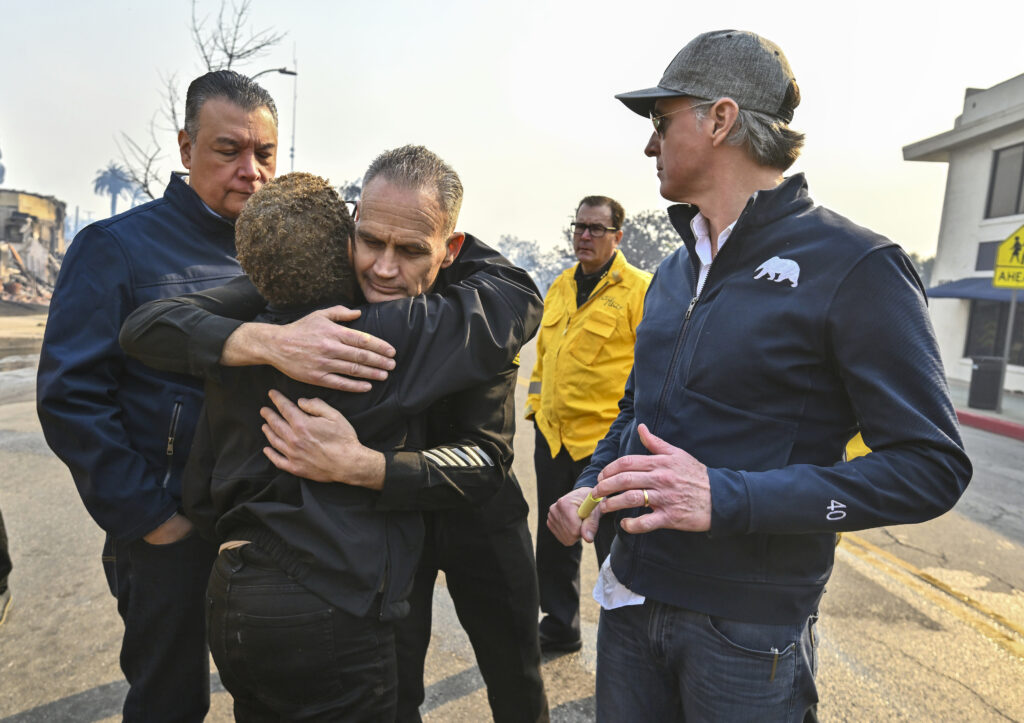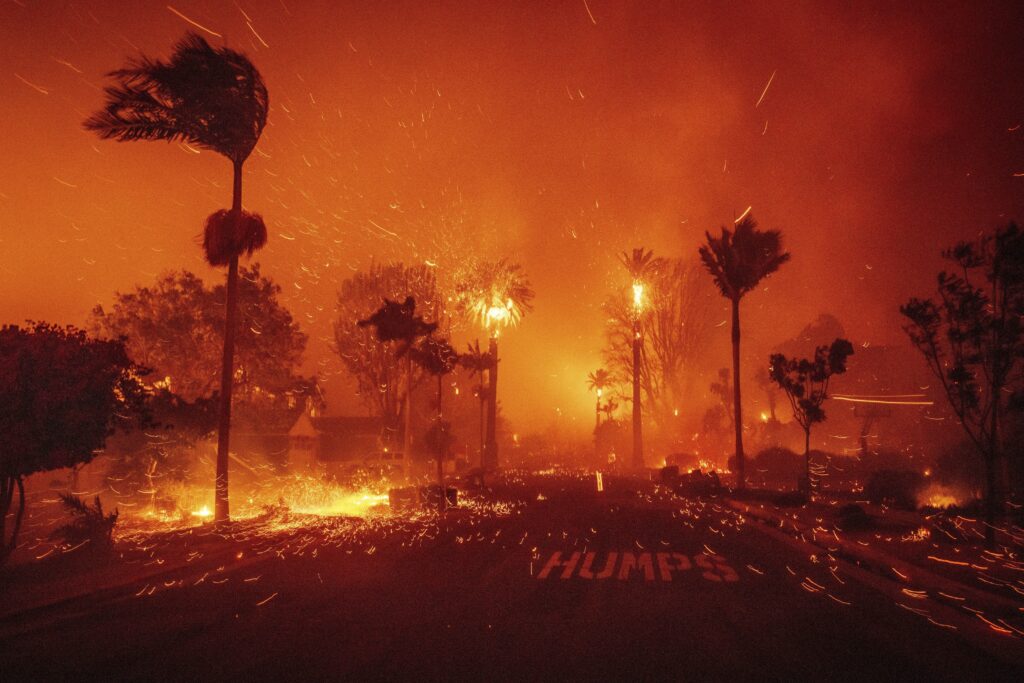California’s Anti-Price Gouging Law Could Make It Harder for Victims of the Wildfires To Find Temporary Shelter
The emergency law caps rents to a ‘fair market value’ determined by HUD, but the caps are so low that many high-end homeowners are delaying putting their properties on the market lest they get prosecuted.

More than 11,000 homes have been destroyed so far by the Los Angeles wildfires — and California price-gouging laws may be making it harder for the people displaced to find temporary shelter.
The Los Angeles real estate market is one of the most expensive in the country. Some single-family homes rent for tens of thousands of dollars a month. A look at Zillow shows more than 1,000 current rental listings at above $10,000.
These prices may seem high to the average American, but to some families displaced from the Pacific Palisades, where the median pre-fire home price was more than $4 million, rents like this are manageable, maybe even expected.
Yet because of a state anti-pricing gouging law, triggered when Governor Newsom declared a state of emergency due to the fires on January 7, fewer properties in this price range are coming to market.
“We know lots of people who are afraid to rent their houses out, who are sitting on rental properties, because they don’t want to get in trouble for renting out their house for too much,” a Los Angeles real estate broker, Richard Schulman, tells The New York Sun.

California’s attorney general, Rob Bonta, announced Wednesday that he has filed the first price gouging lawsuit against a real estate agent who told a couple the price of a rental home they were applying for had just increased 38 percent. He also said his office has sent out 500 warning letters to others after receiving price gouging complaints.
“As I have said repeatedly, the price gouging must stop. Today, we are making good on our promise to hold price gougers accountable, with more to come,” Mr. Bonta said in a press release. “I have been urging the public to report any such incidents to local authorities, or to my office.”
California’s price gouging law limits price increases for goods, services, hotels, and rent to no more than 10 percent above what they were before the emergency declaration.
It also limits the price of new rental properties — those not listed prior to the declaration — to 160 percent of a federally-set “fair market value.” Violators face up to a $10,000 fine or 12 months in jail.
The problem is that the fair market rental value set by the Department of Housing and Urban Development — which is determined by zip code and number of bedrooms and is designed to help those receiving housing vouchers — is far lower than many Los Angeles homes typically rent for.
According to calculations by The New York Sun, the law caps new rental listings in the most expensive zip codes at $8,992 — or 160 percent of the HUD value for a four-bedroom rental. For fewer bedrooms, price caps are lower.

“That’s the metric they use for Section 8 vouchers,” a Los Angeles real estate broker, Brock Harris, tells The New York Sun. “It’s not just high end rentals being affected. The law, the way it’s written, basically caps the rents at well below market rent for most rentals in most of LA.”
Take Beverly Hills as an example. Rent for a four-bedroom home in the 90210 zip code is capped under this California emergency law at $8,880 — tens of thousands below what’s currently listed on Zillow. In the trendy Silver Lake neighborhood, which Mr. Harris compares to Williamsburg, rent for a three-bedroom would be capped at $5,040, also below market.
“Price gouging is bad,” Mr. Schulman says, “But the HUD numbers don’t work for anybody.”
“Any smart landlord will read the law and will realize it’s far too risky renting their property under these conditions,” Mr. Harris says. “The danger isn’t necessarily that people will get arrested or fined. In fact, that’s very unlikely.”
He adds that “the danger is that tenants will move in under these conditions and then use gouging as an eviction defense and decide not to pay, or at the conclusion of their tenancy they’ll say, ‘Oh, actually you owe me some money back because of the gouging.’”
Messrs. Schulman and Harris say landlords are already wary post-Covid to rent out their properties, as city and state eviction moratoriums, rent freezes, and other tenant protections lasted for years.
Mr. Newsom already issued an executive order extending price gouging protections for building materials into next year. The rental restrictions are set to expire in March.
“Everyone assumes this will go one indefinitely or for a long time,” Mr. Schulman says. “With Covid the emergency order just dragged on and on.”
The Palisades and Eaton Fires are still not fully contained after more than two weeks. At least 28 people have died. Two new fires ignited this week, forcing the evacuation of thousands more Los Angelinos.
Many of the current Zillow listings in the Los Angeles area above $10,000 were added in the last few days, in clear violation of the price gouging law.
Take, say, a 1950’s four-bedroom split level in Benedict Canyon just listed at $17,500 per month. Or a 6-bedroom Beverly Hills contemporary with a pool listed six days ago for $59,500.
Some of these homeowners may not understand the law, or they’re taking a gamble that they won’t get caught. “I completely understand a landlord who goes, ‘Hey, this is capitalism,” a real estate agent, Ian Rhodes, tells The New York Sun.
Mr. Rhodes, though, says the law is “beneficial” to those who would otherwise get priced out. “I kind of get both sides of it,” he says.
“The law was written with the best of intentions, but the metrics are off,” Mr. Harris says. “The fire is really a tale of two cities: Palisades is Beverly Hills. Altadena is Bushwick. It’s two very different rental populations with two very different experiences of the market.”
Mr. Schulman says he hopes they make a carve out for luxury rentals. “There’s a total stoppage of the market,” he says. “I have friends who are living in hotels with children or they’re living 45 minutes from their kids’ school.”
“If someone has $25,000 a month to rent a luxury home out, I think we should let them. Let the market solve itself,” he says.

